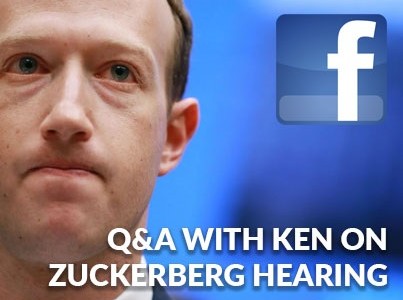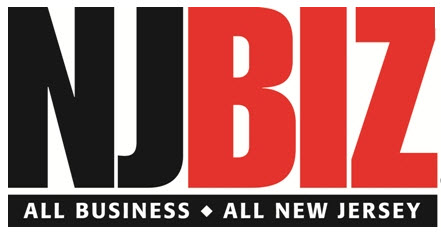Facebook is a merely a “conduit” and it’s “hard to say” that the social media platform is solely to blame for the data breach that saw 87 million accounts exposed to Cambridge Analytica. That’s the stance of Ken Wisnefski, founder, and CEO of digital marketing agency WebiMax, and he’s withholding judgment until someone can show […]
Category Archives: export
Ken on CBS3 Eyewitness News – Momentum in Camden
CAMDEN, NJ (CBS) – Dreams are taking shape along the Camden Waterfront. The city’s planning board has approved a new 156-unit apartment building next to Campbell Field to compliment the billion-dollar Camden Waterfront mixed-use development project. The apartments will be developed by Dranoff Properties which also did the Victor Lofts. They will be incorporated into […]
Ken on Donald Trump’s Twitter Presence
Ken on Newsmax TV’s The Hard Line Discussing Donald Trump’s Twitter Activity
WebiMax CEO Ken Wisnefski discusses the FBI vs Apple standoff with CCTV’s Rachel Akuffo
Ken on Mid Day with Dr. Drew – Apple Vs. the FBI
Ken Comments on the Republican Race to the White House
Reputation Management Expert Ken Wisnefski comments on why it seems Donald Trump is rewarded for saying things most would be criticized for. “While I certainly wouldn’t advise my clients to make such defiant political statements, I do advise my clients to acknowledge the importance of transparency. In a world where people have so much information […]
Ken in NJBIZ Discusses Moving to Camden One Year Later
As he sits in a conference room that overlooks the Delaware River and the Philadelphia skyline, WebiMax founder and CEO Ken Wisnefski is also enjoying his view of Camden. A Newark native, Wisnefski says he’s proud of the fact his company was the first to commit to Camden under the landmark Economic Opportunity Act of […]
Ken Wisnefski Talks with Greg Adomatis of NJ.com about Moving WebiMax to Camden
CAMDEN — They could have gone to Delaware or stayed in Mount Laurel, but Webimax opted to invest in the “city invincible”… As of October, the NJEDA has put more than $1.1 billion on the table to lure businesses to Camden. Holtec International will receive $260 million as they construct a nuclear power plant production facility. Others, like […]
Ken in NFIB on the Hyper-Local Movement
“People used to predict the end of brick and mortar because shopping online was so much more convenient with more choices—no searching through a huge store looking for a small item, no carrying items around a store, no traffic and no checkout lines,” he says. “But that prediction supposes that people really hate leaving the […]
Ken Wisnefski offers a marketing tip in Fit Small Business
The sudden rise in use of mobile technology and the innovation in that technology is opening up new opportunities for small businesses to increase their foot traffic and sales. Next time you’re in a public space look around and you will see a lot of people on their mobile devices, and chances are […]
Ken Wisnefski talks about the worst / best office holiday gifts with ABC News’ Susanna Kim
When it comes to holiday gifts at the office, when your job and reputation are on the line, it’s not just the thought that counts. Ken Wisnefski, CEO of Internet marketing firm WebiMax, based in Camden, New Jersey, learned that lesson the hard way. “A few years back, I went through a lot of trouble getting everyone […]
Ken Wisnefski awarded Most Admired CEO by Philadelphia Business Journal
Ken Wisnefski won Most Admired CEO in the entrepreneur category by the Philadelphia Business Journal. Click Here to Read the Full Press Release
Ken Wisnefski profiled in CBS Philly online
Ken Wisnefski was profiled in CBS Philly online to talk about his success being an entrepreneur and to offer advise to those seeking a career in business management. “Knowing how to delegate tasks and who to delegate them to is a skill, but don’t be above tasks. Know when to step into those tasks […]
Ken Wisnefski on CBS Sports Radio with Jody McDonald
In this clip, Ken Wisnefski discusses the importance of branding, the perils of social media and Derek Jeter’s latest media venture with CBS Radio host Jody McDonald.
Ken Wisnefski with host George Young on NFL’s tarnished reputation
Listen to Ken’s interview on CBS Sports Radio with host George Young on the NFL’s recent mishandling of a slew of transgressions by its players and what that means for the organization’s reputation. http://youtu.be/JECEv_wB4cY?list=UU20R_dWlwJkn6UElUG0XUMQ
Ken Wisnefski – Sioux Falls, South Dakota 99.1 ESPN Radio – Ryan Braun and Reputation Management
Ken – WBKV Radio Appearance – Radio Appearance West Bend Radio
Apr. 16th: Ken Wisnefski Discusses the Importance of Branding with ABC News
Ken Wisnefski, Founder & CEO of WebiMax, recently discussed the importance of branding with ABC News. In the interview, Ken explains that the rising cost of Masters Tournament ticket prices is “100 percent related to Tiger (Woods)” and details the impact of Tiger’s name value as a brand for the Masters. Read More on ABCNews.com
Nov. 20th: Ken Wisnefski Featured on CSMonitor.com
Check out Ken’s latest contribution to The Christian Science Monitor













